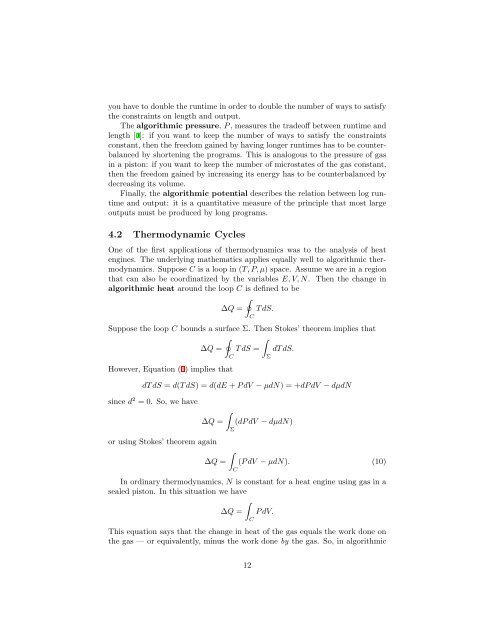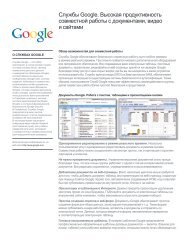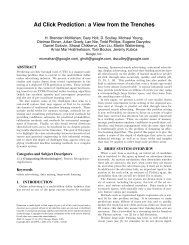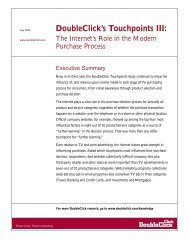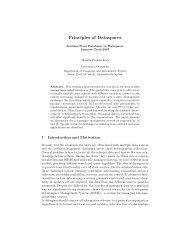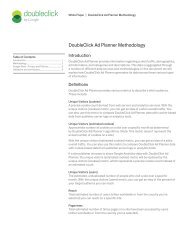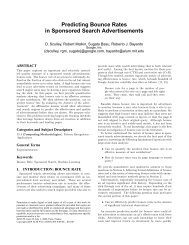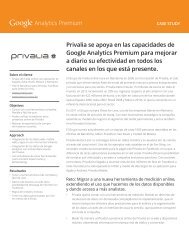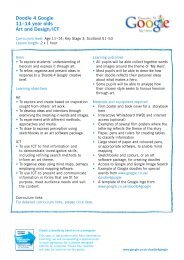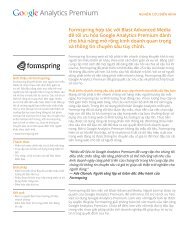Algorithmic Thermodynamics
Algorithmic Thermodynamics
Algorithmic Thermodynamics
You also want an ePaper? Increase the reach of your titles
YUMPU automatically turns print PDFs into web optimized ePapers that Google loves.
you have to double the runtime in order to double the number of ways to satisfythe constraints on length and output.The algorithmic pressure, P, measures the tradeoff between runtime andlength [4]: if you want to keep the number of ways to satisfy the constraintsconstant, then the freedom gained by having longer runtimes has to be counterbalancedby shortening the programs. This is analogous to the pressure of gasin a piston: if you want to keep the number of microstates of the gas constant,then the freedom gained by increasing its energy has to be counterbalanced bydecreasing its volume.Finally, the algorithmic potential describes the relation between log runtimeand output: it is a quantitative measure of the principle that most largeoutputs must be produced by long programs.4.2 Thermodynamic CyclesOne of the first applications of thermodynamics was to the analysis of heatengines. The underlying mathematics applies equally well to algorithmic thermodynamics.Suppose C is a loop in (T, P, µ) space. Assume we are in a regionthat can also be coordinatized by the variables E, V, N. Then the change inalgorithmic heat around the loop C is defined to be∮∆Q = TdS.Suppose the loop C bounds a surface Σ. Then Stokes’ theorem implies that∮ ∫∆Q = TdS = dTdS.However, Equation (6) implies thatCdTdS = d(TdS) = d(dE + PdV − µdN) = +dPdV − dµdNsince d 2 = 0. So, we have∫∆Q = (dPdV − dµdN)or using Stokes’ theorem again∫∆Q =ΣCCΣ(PdV − µdN). (10)In ordinary thermodynamics, N is constant for a heat engine using gas in asealed piston. In this situation we have∫∆Q = PdV.This equation says that the change in heat of the gas equals the work done onthe gas — or equivalently, minus the work done by the gas. So, in algorithmicC12


